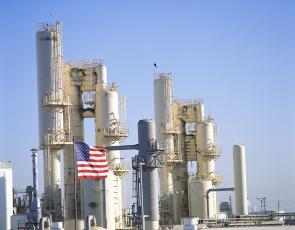On Tuesday, November 29th AFPM President and CEO Chet Thompson sent a letter to Congressional leadership urging their immediate intervention to avoid a rail worker strike. Thompson stressed that time is of the essence since shipping embargos and service curtailments capable of disrupting U.S. manufacturing, fuel production and freight deliveries are starting now, well before a December 9 work stoppage. A copy of AFPM’s letter is available here and excerpts can be found below:
- “U.S. refiners and petrochemical manufacturers rely heavily on the rail network to deliver feedstocks and critical materials to their facilities and refined products to consumer markets. Thus, any disruptions to rail service would likely throttle production and delivery of critical products such as gasoline, diesel, heating oil, and petrochemicals at a time when demand is high and inventories low.”
- “[T]he impacts of such a strike have already begun to affect the U.S. freight rail system and rail-dependent manufacturing sectors are starting to see railroads ramp down operations ahead of a work stoppage.”
- “ Without the ability to move essential materials in and out of refineries, ethanol plants, and fuel terminals with regularity, the liquid fuel supply chain could experience significant operational disruptions, which would be further felt by consumers.”
- “AFPM respects the negotiation process and the positions of both the railroads and rail labor unions, but as President Biden noted in his remarks last night, the consequences of a rail strike to the American economy are so significant that Congress must intervene. While a voluntary agreement with the four holdout unions is the best outcome, the risks to America’s economy and communities simply make a national rail strike unacceptable.”


